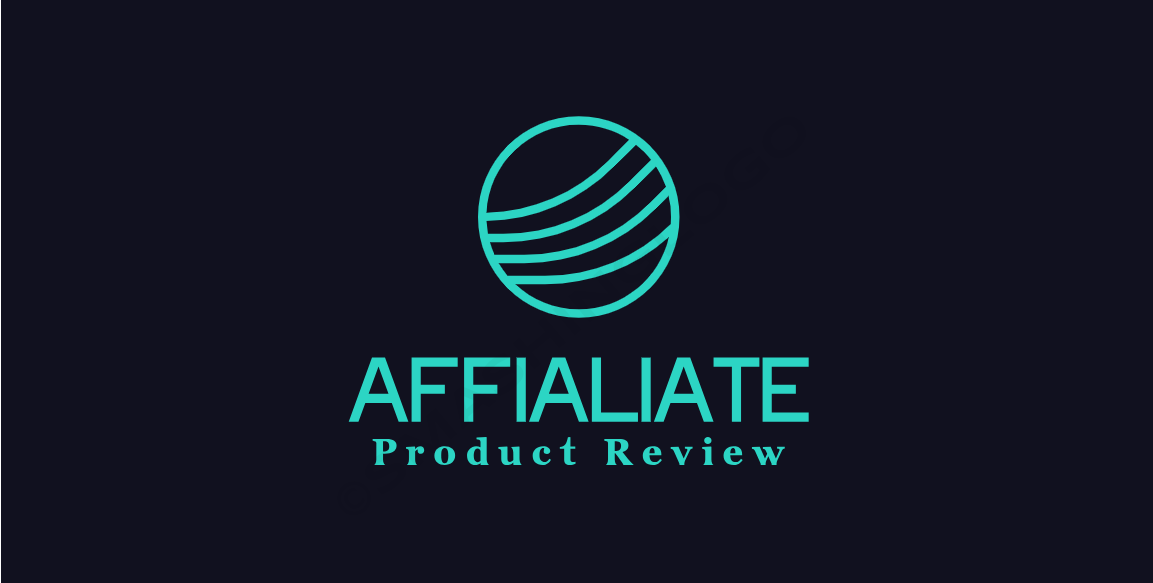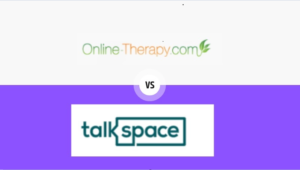In 2024, the focus on health and wellness is stronger than ever. As workplaces prioritize employee wellbeing and retention, the importance of prevention and promoting mental health is becoming paramount. Holistic wellbeing and workplace flexibility are also emerging as important trends. To help individuals improve their health and wellness practices, specific courses and workshops are available. These educational opportunities provide valuable knowledge and skills for individuals looking to enhance their overall wellbeing.
Key Takeaways:
- Companies are prioritizing employee wellbeing and are offering health and wellness courses and workshops.
- Prevention and mental health support are key focus areas for workplace wellness programs in 2024.
- Holistic approaches and workplace flexibility are important trends in promoting overall wellbeing.
- Financial wellness education is gaining importance as employers recognize the impact of financial stress on employees.
- Specific workshops and courses are available to help individuals improve their health and wellness practices.
Focus on Prevention as a Workplace Wellness Trend for 2024
Workplace wellness programs have become increasingly important as companies prioritize employee wellbeing and recognize the benefits of investing in their workforce. In 2024, one of the key trends in workplace wellness is a shift towards prevention strategies to promote overall employee wellbeing. By focusing on prevention, organizations can proactively address health issues and create a healthier and more productive work environment.
One crucial aspect of prevention in workplace wellness is training managers to identify mental health challenges and provide the necessary support and resources. Employee wellbeing goes beyond physical health, and it’s essential to address mental health issues as well. By offering workshops and counseling sessions on stress management, resilience building, and promoting psychological wellbeing, employers can help their employees develop effective coping strategies and create a positive work environment.
Regular health check-ups are another vital component of prevention in workplace wellness programs. These check-ups can include basic health screenings, such as blood pressure and cholesterol checks, as well as assessments for mental health and stress levels. By providing employees with the opportunity to monitor their health on a regular basis, organizations can identify potential issues early on and take proactive steps to address them.
“Prevention is the foundation of a successful workplace wellness program. By training managers, offering workshops, and providing health check-ups, organizations can create a culture of health and wellbeing.”
Table: Strategies for Prevention in Workplace Wellness
| Prevention Strategies | Description |
|---|---|
| Training Managers | Equip managers with the knowledge and skills to identify and address mental health challenges in the workplace. |
| Health Check-ups | Offer regular health check-ups for employees, including screenings for physical and mental health. |
| Workshops and Counseling | Provide workshops and counseling sessions on stress management, resilience building, and psychological wellbeing. |
| Encourage Physical Activity | Promote physical activity through initiatives like standing desks, fitness challenges, and group exercise classes. |
In addition to training managers and offering health check-ups, workplace wellness programs can also encourage physical activity as a means of prevention. Physical activity has numerous benefits for both physical and mental health and can help prevent chronic diseases and reduce stress levels. By providing opportunities for employees to engage in physical activities, such as offering fitness challenges, organizing group exercise classes, or providing on-site gym facilities, organizations can promote a healthier and more active workforce.
By focusing on prevention strategies, such as training managers, offering health check-ups, and promoting physical activity, workplace wellness programs can play a significant role in improving employee wellbeing and creating a healthier work environment. Investing in prevention not only reduces healthcare costs in the long run but also enhances employee satisfaction and productivity.
Importance of Mental Health Support in Workplace Wellness Programs
In response to the stress and challenges of the past year, workplace wellness programs are focusing more on mental health support. It is vital for organizations to prioritize the mental well-being of their employees as it directly impacts their overall well-being and productivity. Creating an inclusive work culture that values mental health promotes employee well-being, job satisfaction, and retention.
“A healthy work environment is one that recognizes the importance of mental health and fosters a culture of support and understanding.”
Mental health benefits play a crucial role in supporting employees. These benefits may include access to therapy sessions, counseling services, and mental health resources. By providing these resources, organizations show their commitment to their employees’ mental well-being and encourage them to seek help when needed.
In addition to mental health benefits, workplace wellness programs can host mental health events and seminars during work hours. These events provide an opportunity for employees to learn about and engage in self-care practices. Moreover, wellness apps focused on mental health are also available to provide employees with support and resources at their fingertips.
Promoting an Inclusive Work Culture
An inclusive work culture is essential for mental health support. It involves creating an environment where employees feel safe to discuss their mental health challenges and seek the necessary support without fear of stigma or judgment. Open communication channels and supportive policies contribute to a positive work environment.
Overall, mental health support is a critical component of workplace wellness programs. Prioritizing mental well-being, fostering an inclusive work culture, providing mental health benefits, hosting relevant events, and utilizing wellness apps can effectively support employees in managing their mental health and promoting overall well-being.
Embracing Holistic Wellbeing in Workplace Wellness Programs
The concept of holistic wellbeing is gaining recognition in workplace wellness programs as organizations understand the importance of addressing not just physical health, but also the interconnectedness of the body, mind, social connections, and spirit. By embracing holistic wellbeing, companies can create a work culture that values and promotes overall employee wellness, leading to increased engagement and improved productivity.
To foster holistic wellbeing, workplace wellness programs can offer a range of activities and resources. For example, providing yoga classes can help employees strengthen the body-mind connection, improve flexibility, and reduce stress. Breathwork training sessions can teach relaxation techniques that enhance mental clarity and emotional wellbeing. Mental health consultations can provide employees with a safe space to address any challenges they may be facing and receive support and guidance.
Employee engagement is a crucial aspect of holistic wellbeing, and organizations can facilitate this by implementing initiatives that encourage meaningful connections and a sense of belonging. This can include team-building activities, mentorship programs, or creating spaces for employees to collaborate and share ideas. By prioritizing employee engagement, organizations foster a positive work environment that promotes overall wellbeing and supports the holistic growth of their employees.
Benefits of Embracing Holistic Wellbeing in Workplace Wellness Programs:
- Improved physical and mental health
- Reduced stress levels
- Increased employee engagement and productivity
- Enhanced work-life balance
- Promotion of overall employee wellness
By considering the body, mind, social connections, and spirit in workplace wellness programs, organizations can create a comprehensive approach that supports the overall wellbeing of their employees. Through activities such as yoga classes, breathwork training, and mental health consultations, organizations can provide employees with the tools and resources they need to thrive both personally and professionally.
Increasing Workplace Flexibility for a Modern Workforce
Workplace flexibility has become a crucial aspect of modern organizations, with remote work and flexible arrangements gaining popularity among employees. This shift towards flexibility not only benefits individual employees but also contributes to a healthier and more productive work environment.
Embracing workplace flexibility promotes a diverse and inclusive workforce, allowing individuals from different backgrounds and circumstances to thrive. It enables employees to achieve a better work-life balance, providing them with the flexibility to manage personal responsibilities while meeting work obligations. This balance enhances employee satisfaction and engagement, resulting in increased productivity and overall organizational success.
A healthy workplace culture is fostered by embracing workplace flexibility. By offering remote work options, organizations empower employees to work in environments that suit their needs best, fostering creativity, innovation, and job satisfaction. The ability to work from anywhere encourages a sense of autonomy and trust, leading to higher employee morale and retention.
Benefits of Workplace Flexibility
- Improved work-life balance
- Enhanced employee satisfaction and engagement
- Increased productivity and creativity
- Greater diversity and inclusion
- Higher employee morale and retention
In conclusion, workplace flexibility has become essential for organizations to attract and retain top talent. It promotes work-life balance, diversity, and a healthy work environment, contributing to overall employee satisfaction and organizational success.

The Importance of Financial Wellness Education in Workplace Wellness Programs
Financial wellness is a crucial aspect of overall wellbeing, and employers are recognizing the impact of financial stress on their employees. To address this issue, workplace wellness programs are increasingly incorporating financial wellness education. By providing workshops and educational resources, organizations aim to alleviate financial stress and enhance employee productivity.
Financial wellness benefits both employees and employers. Employees who feel more confident about their financial future are likely to experience reduced stress levels and increased job satisfaction. This, in turn, leads to improved performance and higher retention rates. Employers, on the other hand, benefit from a more motivated and engaged workforce.
Workshops focused on financial wellness cover a range of topics, including budget planning, debt reduction strategies, and savings tactics. These interactive sessions provide employees with practical skills and knowledge to make informed financial decisions. Additionally, organizations can establish partnerships with financial wellness experts or companies to offer comprehensive support and guidance to employees.
Table: Financial Wellness Workshop Topics
| Workshop Topic | Description |
|---|---|
| Budget Planning | Learn how to create and stick to a budget, manage expenses, and save for future goals. |
| Debt Reduction Strategies | Explore different approaches to reduce debt, such as debt consolidation, refinancing, or negotiation with creditors. |
| Savings Tactics | Discover effective strategies for building an emergency fund, saving for retirement, and achieving financial milestones. |
By prioritizing financial wellness education, workplace wellness programs not only support employee wellbeing but also contribute to the overall success of the organization. A financially educated workforce is better equipped to make sound financial decisions, leading to a more financially stable and resilient workforce.
The Dowd/Sanders Wellness and Resilience Program for Penn Students
The Dowd/Sanders Wellness and Resilience Program offers free workshops for Penn students, providing strategies and skills to manage stress, reach goals, and build strong relationships. These workshops, attended by over a million people worldwide, have been proven effective in various domains, from medicine to sports. The program focuses on resilience and optimism, avoiding thinking traps, real-time resilience, and identifying signature strengths.
Resilience and Optimism Workshop
The resilience and optimism workshop teaches strategies to harness resilience and cultivate a realistic optimistic mindset. Participants will learn about the six strategies of realistic optimism and how they can positively impact mental, physical, and relationship wellbeing, as well as academic life.
Avoid Thinking Traps Workshop
The avoid thinking traps workshop helps participants recognize and address common patterns of thinking that can hinder confidence, responses to setbacks and challenges, and the ability to connect with others. Participants will explore their own thinking traps and learn simple strategies to overcome them and readjust their mindset.
Real-Time Resilience Workshop
The real-time resilience workshop offers strategies to quiet unhelpful mental chatter that arises before stressors such as exams, public speaking, or interviews. Participants will practice techniques to stay present, engaged, and perform at their best during challenging situations.
Signature Strengths Workshop
The signature strengths workshop helps participants identify their top character strengths and learn how to use them to navigate challenges, foster authentic relationships, and maintain personal authenticity. Participants will discover their strengths and how to leverage them in various aspects of life.

Table: Workshop Details
| Workshop Name | Description |
|---|---|
| Resilience and Optimism Workshop | Teaches strategies to harness resilience and cultivate a realistic optimistic mindset, impacting mental, physical, relationship, and academic wellbeing. |
| Avoid Thinking Traps Workshop | Helps participants recognize and address common patterns of thinking that hinder confidence, responses to setbacks, and the ability to connect with others. |
| Real-Time Resilience Workshop | Offers strategies to quiet unhelpful mental chatter and perform at one’s best during challenging situations. |
| Signature Strengths Workshop | Helps participants identify top character strengths and leverage them to navigate challenges, foster authentic relationships, and maintain personal authenticity. |
Resilience and Optimism Workshop
Building resilience and fostering an optimistic mindset are crucial skills for personal growth and success in various aspects of life. At our Resilience and Optimism Workshop, participants will learn invaluable strategies to cultivate realistic optimism and enhance their mental, physical, and relationship wellbeing. This workshop is specifically designed to equip individuals with practical tools to navigate challenges and thrive in academic life and beyond.
The Power of Realistic Optimism
Realistic optimism is a mindset that combines positive thinking with a grounded understanding of reality. It allows individuals to approach challenges with hope and confidence while maintaining a realistic perspective. During this workshop, participants will explore the six key strategies of realistic optimism and discover how they can positively impact their mental, physical, and relationship wellbeing. By embracing this mindset, individuals can develop resilience and thrive in academic pursuits, professional endeavors, and personal relationships.
Cultivating Resilience for Success
Resilience is the ability to bounce back and adapt in the face of adversity. Through interactive exercises and expert guidance, participants will learn practical strategies to build resilience and overcome setbacks. They will develop a deeper understanding of the mind-body connection and discover actionable ways to enhance their mental and physical wellbeing. By strengthening resilience, individuals can effectively manage stress, maintain focus, and achieve their goals in both academic and personal spheres.
Nurturing Healthy Relationships
Positive relationships are essential for overall wellbeing and success. In this workshop, participants will explore the role of relationships in fostering resilience and happiness. They will gain insights into effective communication, conflict resolution, and building authentic connections. By developing healthy relationship skills, individuals can enhance their social support network, contribute to a positive environment, and experience greater satisfaction in all aspects of life.
Join our Resilience and Optimism Workshop to unlock your full potential and cultivate the skills necessary for personal growth, academic success, and overall wellbeing. Discover the power of realistic optimism, build resilience, and nurture meaningful relationships. Take the first step towards a brighter, more resilient future.
Avoid Thinking Traps Workshop
In the workplace, our thoughts and mindset play a critical role in our confidence, ability to overcome setbacks, and navigate challenges. The Avoid Thinking Traps Workshop is designed to help participants recognize and address common patterns of thinking that can hinder their personal and professional growth. By exploring the strategies and techniques taught in this workshop, individuals can gain a deeper understanding of their cognitive biases and develop effective strategies to overcome them.
One common thinking trap is negative self-talk, where individuals engage in constant self-criticism and doubt their abilities. This can significantly impact confidence levels and hinder performance. Through the Avoid Thinking Traps Workshop, participants learn techniques to challenge negative self-talk and replace it with more positive and empowering thoughts. By reframing their perspectives, individuals can boost their confidence and approach setbacks and challenges with resilience and determination.
The workshop also explores other thinking traps such as overgeneralization and catastrophizing, where individuals tend to make broad assumptions or blow things out of proportion. These patterns of thinking can lead to unnecessary stress and anxiety. By learning techniques to identify and address these thinking traps, participants gain a greater sense of control and are better equipped to handle challenging situations.
By participating in the Avoid Thinking Traps Workshop, individuals can develop strategies to overcome common patterns of thinking that hinder confidence, setbacks, and the ability to effectively navigate challenges. This workshop provides a valuable opportunity to gain insight into one’s cognitive biases and learn practical strategies to reframe thinking and foster a more positive and growth-oriented mindset.
Overall, the Avoid Thinking Traps Workshop equips participants with the tools and strategies needed to break free from limiting thinking patterns. By recognizing and addressing these thinking traps, individuals can enhance their confidence, overcome setbacks, and approach challenges with a mindset focused on growth and success.

Real-Time Resilience Workshop
The real-time resilience workshop is designed to equip participants with effective strategies to manage stress and perform at their best in challenging situations. By quieting the unhelpful mental chatter that often arises in the face of stressors, individuals can stay present and engaged, leading to improved performance and overall well-being.

During the workshop, participants will learn practical techniques to identify and address the mental chatter that can undermine their focus and confidence. By understanding how their thoughts impact their emotions and behavior, individuals can develop strategies to reframe negative thinking patterns and maintain a positive mindset.
The workshop will also provide tools for building resilience in real-time situations, allowing participants to navigate stressors with greater ease and adaptability. Through interactive exercises and group discussions, individuals will discover strategies that work best for them, empowering them to face challenges head-on and achieve their best performance.
Signature Strengths Workshop
Discovering and utilizing our signature strengths is essential for personal growth, authentic relationships, and navigating challenges. The Signature Strengths Workshop is designed to help participants identify their unique character strengths and learn how to leverage them in various aspects of life. By embracing and honing these strengths, individuals can cultivate a sense of personal authenticity and achieve greater fulfillment.
In this workshop, participants will engage in interactive exercises and discussions to uncover their top character strengths. Through guided reflections and self-assessment tools, they will gain insights into their natural talents and abilities. Understanding these strengths is the first step towards empowering individuals to make intentional choices aligned with their core values.
Once participants have identified their signature strengths, the workshop will focus on practical strategies for applying them in everyday life. Whether it’s in personal relationships, professional endeavors, or overcoming challenges, participants will learn how to leverage their strengths to create positive outcomes and build resilience.
Key Workshop Highlights:
- Identifying and understanding your top character strengths
- Exploring the impact of your signature strengths on personal authenticity
- Learning strategies to leverage strengths in various areas of life
- Fostering authentic relationships through the use of strengths
- Developing resilience and navigating challenges using signature strengths
The Signature Strengths Workshop is an opportunity for individuals to gain a deeper understanding of their core character traits and how to harness them for personal growth and success. By embracing their unique strengths, participants can unlock their full potential and cultivate a life of authenticity, fulfillment, and meaningful connections.
Conclusion
As organizations prioritize employee wellbeing, workplace wellness programs have evolved to encompass various aspects of health and wellness. In 2024, the focus is on prevention and promoting mental health, embracing holistic wellbeing, and increasing workplace flexibility. Financial wellness education is also gaining importance, along with resilience programs for students.
Workplace wellness programs now prioritize prevention, recognizing that a proactive approach is key to overall employee wellbeing. By training managers to identify mental health challenges and implementing strategies such as health check-ups and physical activity encouragement, organizations can create a healthier and more productive work environment.
Mental health support is receiving increased attention, with workplace wellness programs focused on creating inclusive cultures and offering benefits and policies that address mental health. Hosting mental health events and utilizing wellness apps can provide employees with the resources they need to prioritize their mental wellbeing.
Holistic wellbeing, which recognizes the interconnectedness of the body, mind, social connections, and spirit, is an essential aspect of workplace wellness programs. By offering activities such as yoga classes, breathwork training, and mental health consultations, organizations can improve overall employee wellbeing and engagement.
Workplace flexibility has become a priority for the modern workforce, with remote work and flexible arrangements being highly valued. Embracing flexibility not only supports work-life balance but also enhances employee satisfaction and well-being, leading to increased productivity and creativity.
Financial wellness education is now recognized as an integral part of workplace wellness. By providing workshops and partnering with financial wellness experts, organizations can help employees reduce financial stress and improve their overall wellbeing.
Lastly, resilience programs for students are crucial in equipping them with the skills and strategies to manage stress and build resilience. Programs like the Dowd/Sanders Wellness and Resilience Program offer free workshops to help students reach their goals, manage stress, and cultivate strong relationships.
By implementing these workplace wellness trends and offering relevant courses and workshops, organizations can create positive work cultures that prioritize employee health, wellbeing, and resilience.
FAQ
What should workplace wellness programs prioritize for employee wellbeing in 2024?
Workplace wellness programs should prioritize prevention, mental health support, holistic wellbeing, workplace flexibility, and financial wellness education.
What strategies can workplace wellness programs implement to promote prevention?
Strategies for prevention include training managers to identify mental health challenges, implementing adaptive workplace designs, offering regular health check-ups, encouraging physical activity, and providing workshops and counseling on healthy habits.
How can workplace wellness programs support employee mental health?
Workplace wellness programs can support mental health by creating an inclusive work culture, promoting open communication, offering mental health benefits and policies, hosting mental health events and seminars, and providing access to wellness apps focused on mental health.
Why is holistic wellbeing important in workplace wellness programs?
Holistic wellbeing recognizes the interconnectedness of the body, mind, social connections, and spirit. By offering activities like yoga classes, breathwork training, and mental health consultations, workplace wellness programs can improve overall wellbeing and happiness.
How does workplace flexibility benefit employees and organizations?
Workplace flexibility supports work-life balance, empowers employees, improves productivity and creativity, and fosters a healthy workplace. It is essential for organizations to attract and retain top talent.
What is the importance of financial wellness education in workplace wellness programs?
Financial stress can impact employee wellbeing. Workplace wellness programs can provide financial wellness benefits and programs, such as workshops on budget planning, reducing debt, or savings tactics, to help employees relieve financial stress and improve productivity.
What is the Dowd/Sanders Wellness and Resilience Program for Penn students?
The Dowd/Sanders Wellness and Resilience Program offers free workshops for Penn students, providing strategies and skills to manage stress, reach goals, and build strong relationships. These workshops have been proven effective in various domains.
What does the resilience and optimism workshop focus on?
The resilience and optimism workshop teaches strategies to harness resilience and cultivate a realistic optimistic mindset. Participants learn about the six strategies of realistic optimism and how they impact wellbeing in various aspects of life.
What does the avoid thinking traps workshop address?
The avoid thinking traps workshop helps participants recognize and address common patterns of thinking that can hinder confidence, responses to setbacks and challenges, and the ability to connect with others. Participants learn strategies to overcome thinking traps and readjust their mindset.
What does the real-time resilience workshop offer?
The real-time resilience workshop offers strategies to quiet unhelpful mental chatter that arises before stressors, such as exams, public speaking, or interviews. Participants practice techniques to stay present, engaged, and perform at their best during challenging situations.
What is the purpose of the signature strengths workshop?
The signature strengths workshop helps participants identify their top character strengths and learn how to use them to navigate challenges, foster authentic relationships, and maintain personal authenticity. Participants discover their strengths and how to leverage them in various aspects of life.
How can workplace wellness programs improve employee health and wellbeing?
By implementing the trends of prevention, mental health support, holistic wellbeing, workplace flexibility, financial wellness education, and offering relevant courses and workshops, organizations can create positive work cultures that prioritize employee health and wellness.





